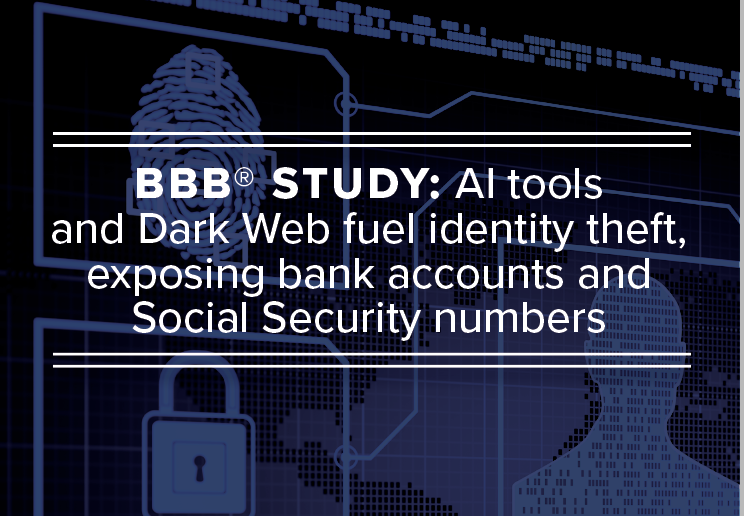Unfortunately for consumers who have had their information affected in data breaches, their information is far from safe, even if they don’t notice any immediate effects.
Scammers unite on surface web, deep web and Dark Web forums to trade information, sell it and give tips on how to continue their ploys. BBB examined more than a dozen active websites to understand how they work, what types of information is being spread and how much scammers can fetch for stolen information.
On a recent post, one fraudster posted a so-called “menu” of information they were offering, with prices attached for the batches of data. On another website, one user claimed to specialize in bank account fraud.
BBB also found several websites devoted to techniques, best practices and lists of stolen information related to “carding,” – which is any scam where fraudsters steal credit card or debit information. Tips ranged from how to create secure VPNs, using cryptocurrency to avoid detection when moving money and ways to take advantage of holes in the defenses of common web browsers.
Other websites selling personal information promised big paydays: “CLICK HERE TO MAKE $25,000+/MONTH RIGHT NOW! $3000/DAY PROOF” read one website. Another post on the same site claimed: “WATCH ME EARN $6200 IN 8 DAYS USING UNIQUE METHODS [250+ VOUCHES]”
Even those who know their information is stolen can’t always prevent poor outcomes. When Rossie in Orlando, Florida, learned some of her information made its way onto the dark web, she was worried about what might happen. Her fears were confirmed when a bank account was opened in her name.
Scammers often use stolen information to open accounts in cases like these. They use those banks to move money around, laundering and making it harder to trace. They might not be open for long, but with enough of them, fraudster operations continue. It can be hard for law enforcement to keep up, as BBB found evidence of posters sharing tips on how to best move money around on hacker forums and let others know when law enforcement is starting to catch on to their methods.
When these hacker forums are taken down, another is often created in its place. For example, the website BreachForums was recently shut down, after building a reputation as one of the most well-known scam websites. One estimate counted its stolen pieces of data at over 14 billion.
In the court documents, FBI lawyers presented their case: “Some of the items that are commonly sold on BreachForums include bank account information, social security numbers and other PII (personal identifying information), and account login information for compromised online accounts, such as usernames and passwords to access accounts with service providers and merchants.”
“Based on my training and experience, sellers in these marketplaces are typically malicious cyber actors and/or their co-conspirators seeking to monetize data that they obtained through unlawful network intrusions,” said the FBI lawyers in the case.
With the growing power of artificial intelligence (AI) tools, scammers can input stolen information in a variety of ways to bolster their tactics.
ExpressVPN, a cybersecurity company, writes about fraudsters using AI tools to search through hundreds of thousands of pieces of information on the dark web to find things like email addresses, leaked credentials and biometric data. They can use the AI to pinpoint specific pieces of “high value” information with a so-called “dark web scan” and then target that person for identity theft.
Not all Dark Web scans are malicious, but when a scammer uses an AI tool built without safeguards, it opens the public to more sophisticated attacks.
“Even if your leaked data doesn’t seem important, scammers can piece together multiple leaks over time, creating a full profile that makes you more vulnerable to AI-powered scams,” the company says.
Researchers have tested the ability of publicly available chatbots to pull off common scams and found they were easily able to trick people into handing over money. Another study showed AI-powered scams already accounted for $12 billion in losses in 2023. BBB has previously written about how AI tools are helping power scams.
